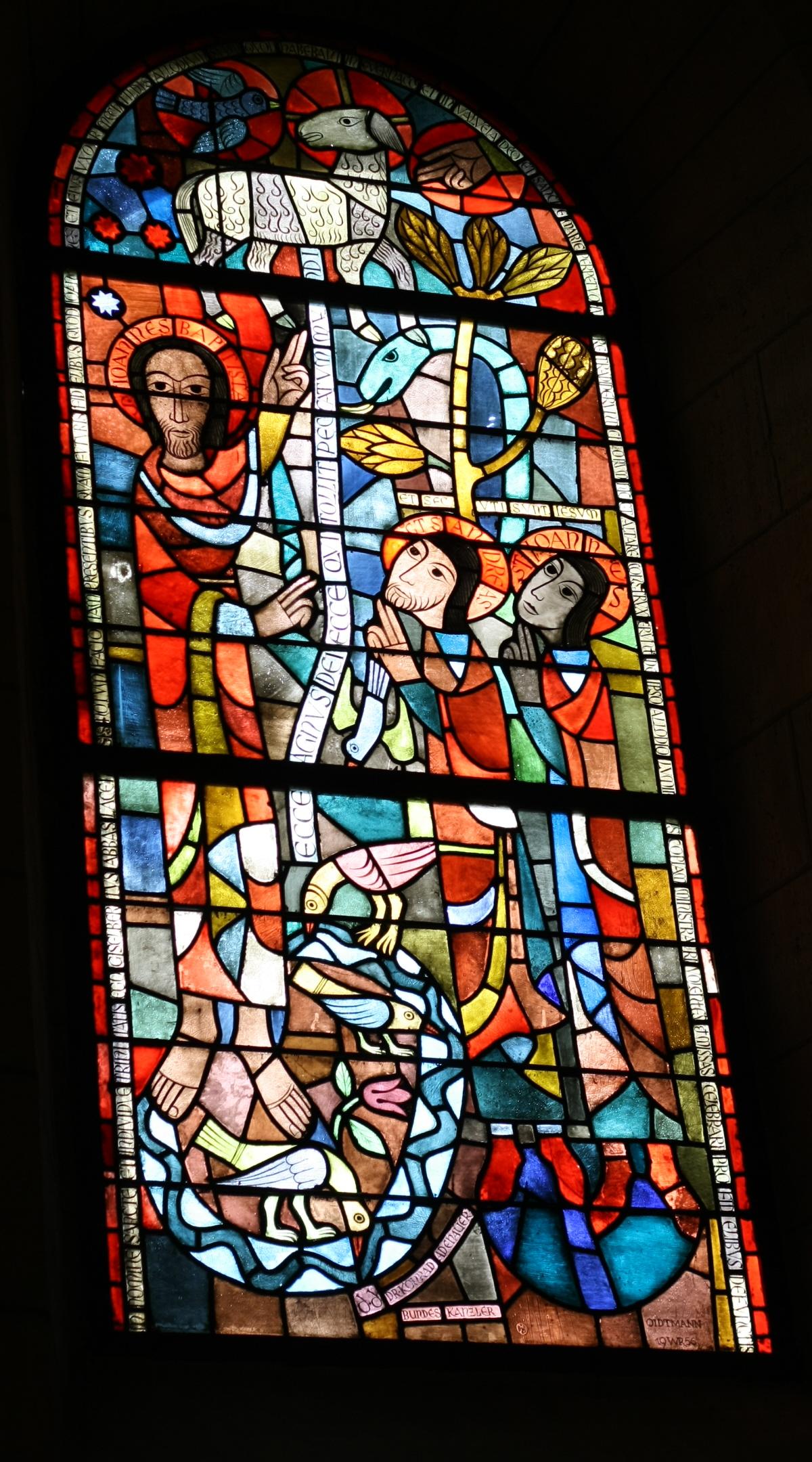Today's readings celebrate the marvelous love of God through Jesus Christ. In his encounter with Nathanael (Jn 1:43-51), Jesus declares,
| | ‘You will see greater things than that. .. I tell you most solemnly, you will see heaven laid open and, above the Son of Man, the angels of God ascending and descending.’ |

The last ties in with Jacob's dream of a ladder stretching between heaven and earth, with angels ascending and descending, in which God declares:
| | ‘Through you and your descendants all the nations of the earth will be blessed. See, I am with you and I will keep you safe wherever you go.’ |
God-with-us is Jesus himself. Giving up his life for us -- the Incarnation, passion and death and resurrection -- laid heaven open. In a word,
love laid heaven open to us. By that love, we are connected to the Father through the Son, depicted by the angels ascending and descending. (I might add that this is likewise depicted by the communion of saints, with our victorious brothers and sisters in heaven working the same way the angels did, through the Son by whom we are all in communion, which death cannot destroy.)
In the first reading (1 Jn 3:11-21), we are taught that the message we
heard from the beginning is
that we are to love one another. This love is life itself, for
[i]f you refuse to love, you must remain dead. And we have a model to follow, for
[t]his has taught us to love, that he gave up his life for us. God loved us first and laid heaven open for us. We who are in Christ should now love others in the same way, giving up our lives in ordinary but real and active ways, giving of our time and energy for others. We who are in Christ can thus make a way between our Father in heaven and those whom we love, through our love, which is God's love living in us, lived out in acts of charity.
My son Patrick wanted to know more about miracles and I do pray that he will one day see these miracles. But more than the uncorrupted saints of a century or more, the unexplainable cures and the Eucharistic miracles, I hope that he and my other children will experience and ever rejoice in
greater things .. heaven laid open at every conversion that turns a sinner into a saint.

 It is probably just as well that I encountered St Josemaria Escriva at some point, and I learned the most amazing thing that makes incredible sense: the call to do ordinary things extraordinarily well -- supernaturally well, in fact. This Lent calls me to an opportunity to be returned to myself (not for me to return to myself, as I'd misstated below). To what do I return? For one, that I am called, to sanctify what is ordinary, by turning it into prayer, asking the Holy Spirit to therefore infuse the mundane activities of everyday with supernatural grace. Father and husband. Teacher, thinker, tinker. In today's readings, Isaiah proclaims God's call to holy ordinariness in acting with justice and compassion, reverence and faith (Is 58:9-14), and Jesus calls sinners to repentance, but also, as with Levi, to be his disciple (Lk 5:27-32). And this Levi is renamed Matthew, and goes from tax collector to apostle, doing ordinary things, really. Yet how many authors have had their book copied, reprinted, cited, read aloud, translated into dozens of languages, over a period of about 2000 years? Quite a boast, and it started one ordinary day at the customs house, with one extraordinary call!
It is probably just as well that I encountered St Josemaria Escriva at some point, and I learned the most amazing thing that makes incredible sense: the call to do ordinary things extraordinarily well -- supernaturally well, in fact. This Lent calls me to an opportunity to be returned to myself (not for me to return to myself, as I'd misstated below). To what do I return? For one, that I am called, to sanctify what is ordinary, by turning it into prayer, asking the Holy Spirit to therefore infuse the mundane activities of everyday with supernatural grace. Father and husband. Teacher, thinker, tinker. In today's readings, Isaiah proclaims God's call to holy ordinariness in acting with justice and compassion, reverence and faith (Is 58:9-14), and Jesus calls sinners to repentance, but also, as with Levi, to be his disciple (Lk 5:27-32). And this Levi is renamed Matthew, and goes from tax collector to apostle, doing ordinary things, really. Yet how many authors have had their book copied, reprinted, cited, read aloud, translated into dozens of languages, over a period of about 2000 years? Quite a boast, and it started one ordinary day at the customs house, with one extraordinary call!

